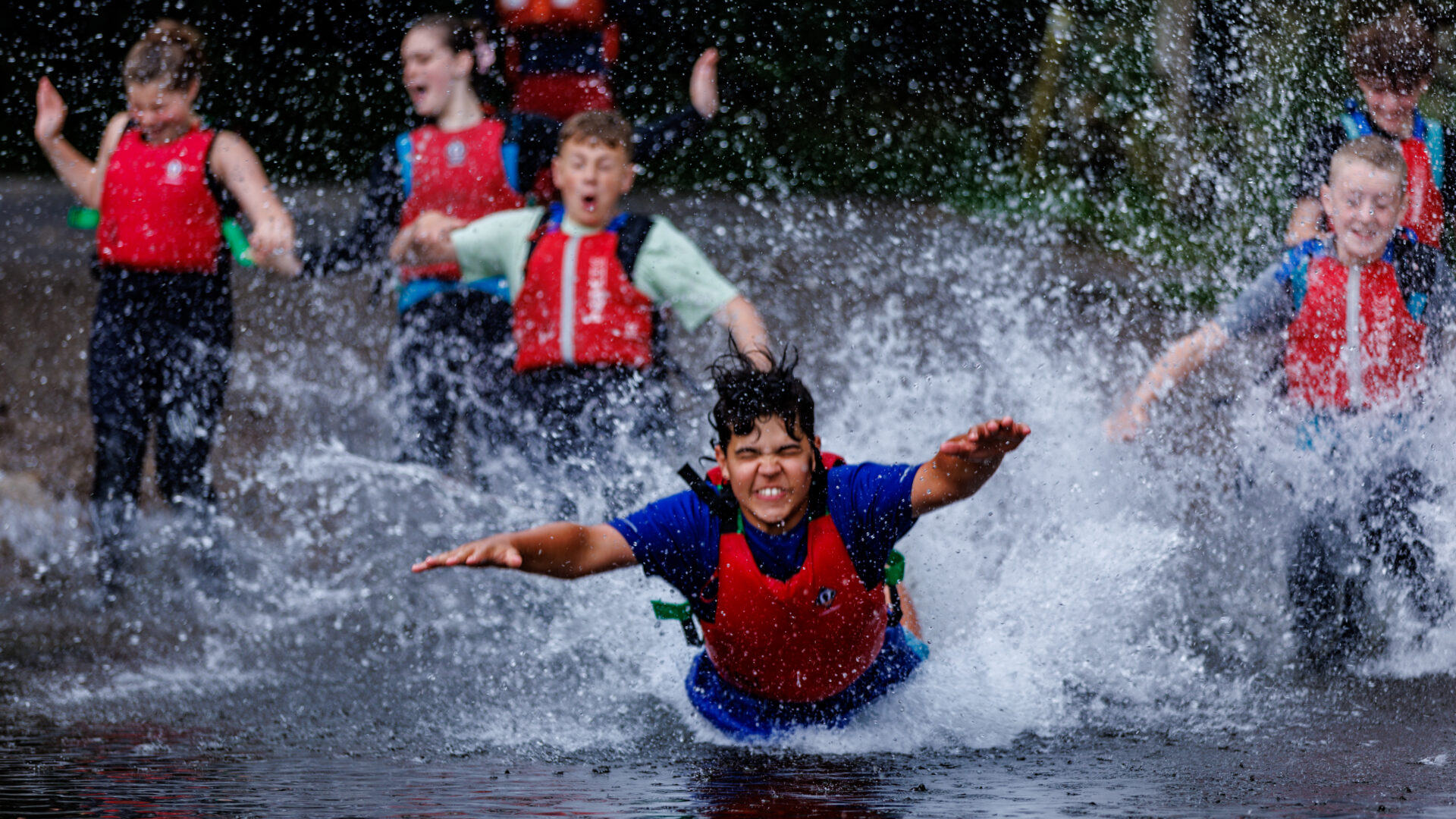
Generation Green 2 has connected a new generation with the outdoors
-
Date posted: 03/07/2025
-
Time to read: 3 mins
Almost 27,000 young people have discovered the power of the outdoors thanks to the 12-month Generation Green 2 project.
The initiative has enabled thousands of young people from some of the most socially disadvantaged areas in England to explore National Parks, National Landscapes, and Sites of Special Scientific Interest, often for the first time.
Funded by the Department for Environment, Food and Rural Affairs (Defra), the landmark £4.5 million programme has transformed access to nature for thousands across England at a time when young people need it the most.
A newly-released Generation Green 2 Celebration Report contains stories, testimonies and imagery from the project. As it shows, the impact has been profound. Eight in ten participants said they would not have had the chance to experience the outdoors without the programme’s support. For over a third of the 26,663 participants, it marked their first-ever visit to the countryside.
Delivered by the Access Unlimited coalition, which includes YHA (England & Wales), The Outward Bound Trust, Field Studies Council, Girlguiding, Scouts, nine National Park Authorities and eight National Landscapes in England, the programme provided life-changing outdoor experiences – from day trips to residentials – designed to improve wellbeing, confidence, and environmental awareness.
“This isn’t just about fun and fresh air,” said James Blake, Chair of Access Unlimited and Chief Executive of YHA (England & Wales). “It’s about equity, opportunity, and giving every young person the chance to thrive in and care for the world around them. However, further funding is needed if we are to keep the momentum going.”
Rebuilding connections lost to the pandemic
The report comes amid mounting evidence that outdoor and nature-based learning is being squeezed out of children’s lives.
Research from The Sutton Trust recently revealed that 53 per cent of senior school leaders have been forced to divert Pupil Premium funding away from outdoor learning to cover shortfalls in core budgets.
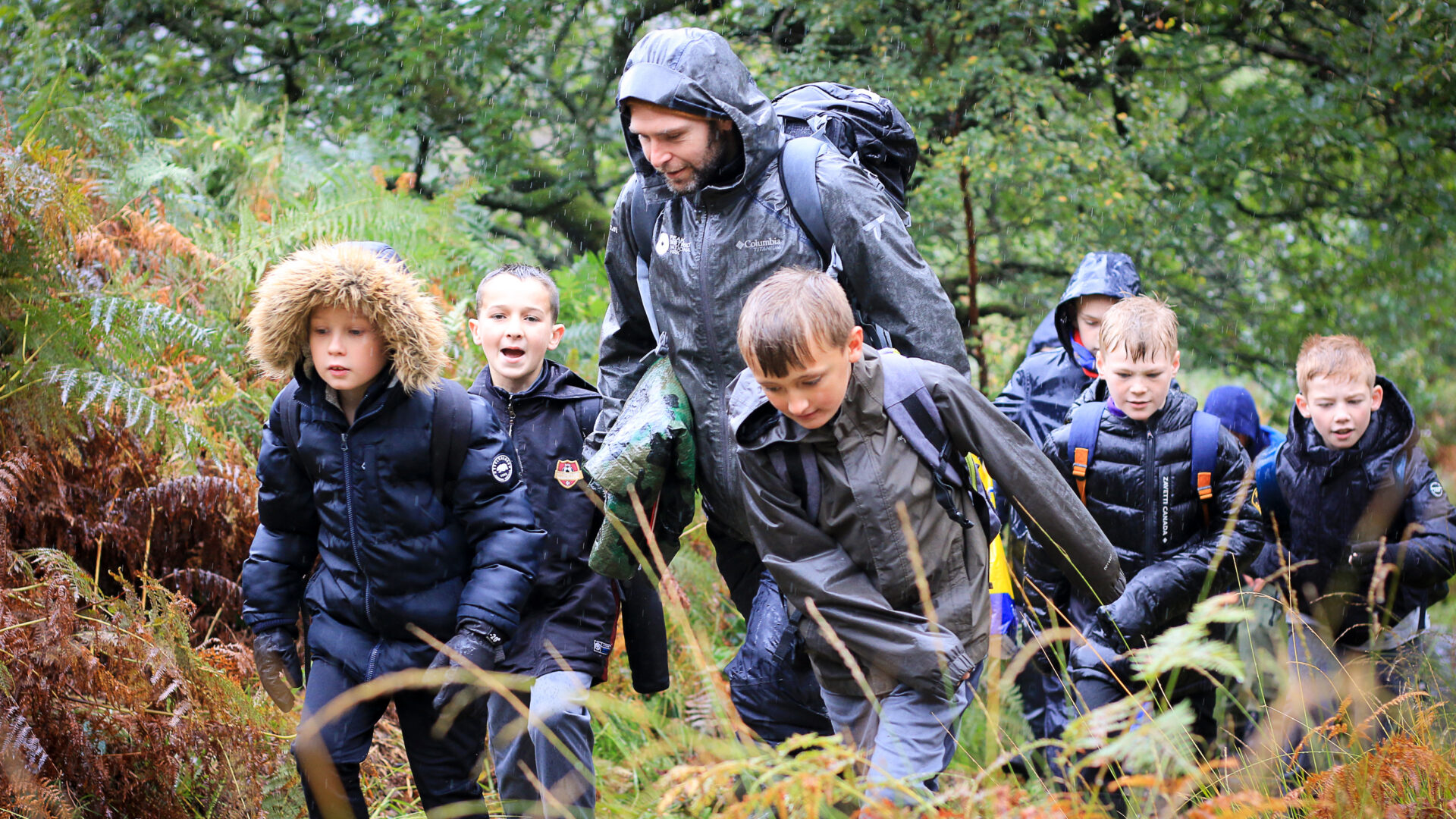
Originally launched in 2021, Generation Green has played a vital role in helping young people rebuild connections with nature that were lost during the COVID-19 pandemic. During the pandemic, one million children missed out on school residentials. Many of these outdoor learning opportunities have yet to return, with some activity centres closing permanently.
In the immediate aftermath of Covid, the first Generation Green programme – lasting 18 months – provided essential access to green space at a time when children’s mental health and connection to the environment were under increasing strain.
Subsequent funding for Generation Green was granted by Defra in March last year for a further 12-month programme. Generation Green 2 focused on nights under the stars, a key recommendation in the Government’s Landscapes Review, which argued that every child should have the opportunity to experience a night in nature if they are to become future custodians of our green spaces.
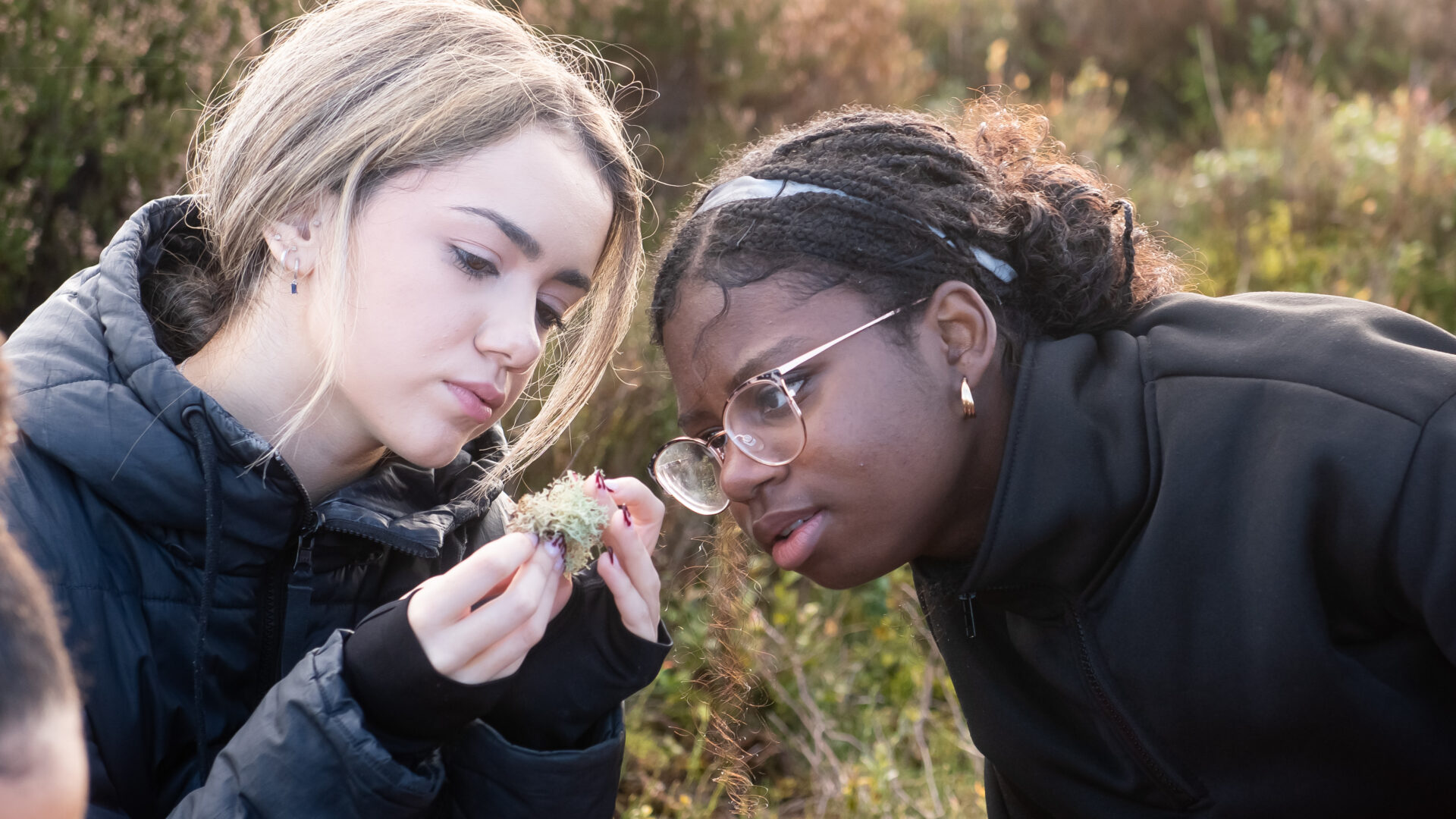
A proven model for a more equitable future
Participants came from some of the most deprived parts of the country, including Croxteth in Liverpool, Blackburn and other low-income areas. The programme created safe, supported, and inspiring spaces for young people to grow, connect, and learn outdoors.
“We know that time in nature can be life-changing,” said Blake. “We want to do more, and we’re ready to do more. But we need long-term support and policy commitment to ensure no child is left behind.”
With Generation Green 2 now at an end, its delivery partners are highlighting the urgent need to build on its success and connect more young people to nature and heritage.
Access unlimited partners celebrate success
Speaking of the impact Generation Green has made in the lives of young people and the continuation of the programme, CEOs for Access Unlimited commented in the Celebration Report:
“Our National Parks and other protected landscapes are where we go to experience and engage with nature, to rest and recreate, and to learn about our landscapes. Every child should have the opportunity to experience this vital part of our national fabric, but sadly not everyone does. Generation Green 2 takes us a step closer to a society where everyone feels engaged with the outdoors, the countryside and nature. That should be everyone’s right, but it’s also what we need if we want to foster a culture that can respond to the climate and biodiversity crisis in the future.” – Jayne Butler, National Parks England
“In 2023 our Girls’ Attitudes Survey revealed 81% of UK girls aged 7-21 found being outdoors and in nature helps them feel happy. The funding from Generation Green 2 has allowed us to give even more girls the opportunity to enjoy the outdoors and have a trip away, to build their confidence and improve their physical and emotional wellbeing and we’re very appreciative to have been involved in Generation Green.” – Angela Salt OBE, chief executive, Girlguiding
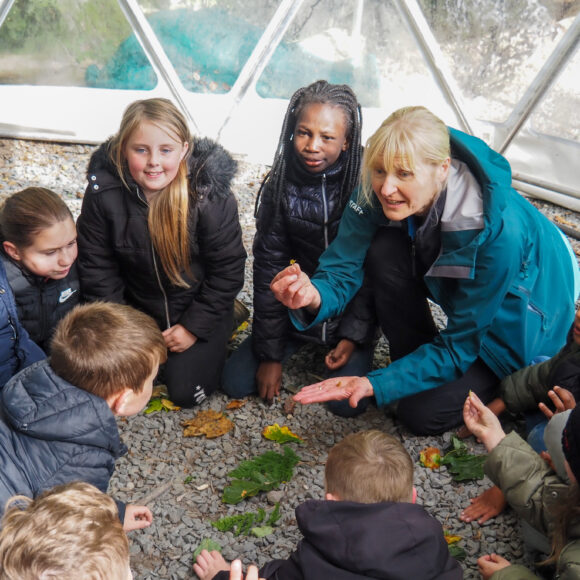
"Generation Green 2 has again demonstrated the impact that high quality outdoor learning can have on so many aspects of a young person’s life"
“Generation Green 2 hasn’t just opened the door to the outdoors, it’s thrown it wide open. Tens of thousands of young people, many from Britain’s most disadvantaged communities, have climbed mountains, camped under the stars, and found their confidence in the wild. And in doing so, they’ve built resilience, connection, and a deeper understanding of the natural world. This project proves what we’ve always known at Outward Bound: When you give young people meaningful experiences in nature, they don’t just grow, they thrive. The legacy of Generation Green 2 will live on in every young person who now sees the outdoors not as something distant, but as a part of who they are.” – Martin Davidson, CEO, The Outward Bound Trust
“Generation Green 2 has again demonstrated the big impact that high quality outdoor learning can have on so many aspects of a young person’s life. For many it was completely new, for some it will be life changing and Field Studies Council is proud to have played our part in that. We saw improvements in mental health, confidence, a love of learning, classroom subjects sparking into life and a renewed sense of joy in running around and being a child. The project also showed us the need for more such opportunities to ensure that no child misses out.” – Mark Castle, CEO of Field Studies Council
“Generation Green 2 has been a powerful reminder of the impact that time spent in nature can have on young people. We’re incredibly proud to have worked with our partners to deliver such inspiring experiences across our National Landscapes — from day visits and farm walks to life-changing residentials. This project has not only opened doors for thousands of young people but has also strengthened our collective commitment to making the outdoors more inclusive, accessible, and welcoming for all.” – John Watkins, Chief Executive, National Landscapes Association
“Generation Green has been a powerful catalyst in helping over 3,700 young people, many from underrepresented backgrounds – connect with nature through meaningful outdoor experiences. By removing barriers, we’ve widened young people’s access to protected landscapes and sparked deeper connections to the environment – supporting wellbeing, resilience and an appreciation for the natural world.” – Aidan Jones, Chief Executive, Scouts
“If we want the environment and nature to be looked after, we need to inspire the next generation. Generation Green 2 has proven how government funding and civil society delivery can work together to extend this inspiration, and the personal development it provides, to many more young people. Through a true partnership approach, Generation Green has connected more than 26,000 disadvantaged young people with the natural world, encouraging the environmentalists of the future, promoting green jobs and setting young people up for lifetimes of enriching adventure through activities in protected landscapes.” – James Blake, CEO, YHA (England & Wales)
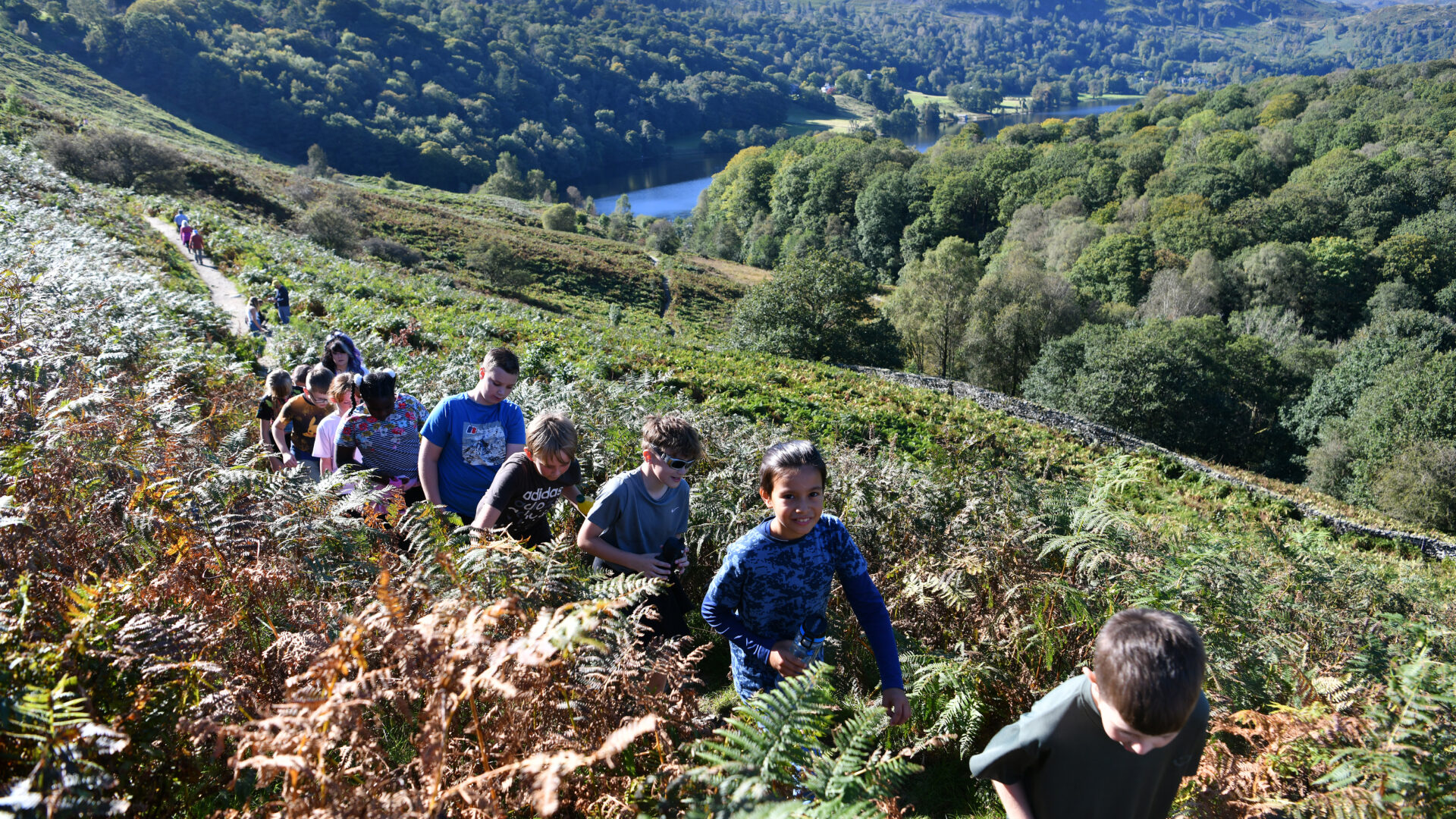
Why we need another Generation Green
Generation Green 1 and 2 have offered a proven blueprint for change, bringing nature into the lives of young people who need it most. This is why we need a Generation Green 3.
- 1 in 5 children aged 10 – 15 has a probable mental health disorder (NHS England, 2023).
- 18% of children in the most deprived areas never visit any kind of natural space.
- Half of the country’s most deprived areas are more than 15 miles from a protected landscape.
- People from Black, Asian and Minority Ethnic communities make up 14% of the population but just 1% of visitors to National Parks.
- Almost 30% of children in England live in poverty, affecting their access to safe outdoor experiences.
Read more about Generation Green 2
The Generation Green 2 Celebration Report features inspiring stories, testimonies and imagery from the project and a wide-ranging overview of its successes.
Over the course of Generation Green 2, three newsletters were released with stories of courses and their impact on participants. Read them here:

